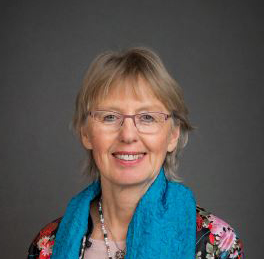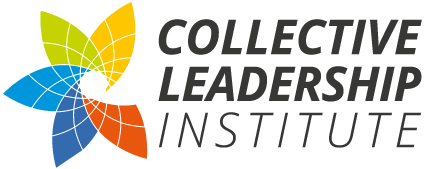The purpose of governance in stewarding sustainability transformations is to leverage collective intelligence and accelerate collective sense-making that furthers behavior change. Governance refers to the multiple ways in which we collectively steward transformative change in our societies, local communities, and global issues allowing us to move towards agreed-upon goals or away from danger. To overcome complex societal or global challenges we need therefore a governance structure that factors prominently multi-stakeholder collaboration and structured dialogue among the various groups that compose our societies.

Dr. Petra Kuenkel
Global Transformation and Leadership Expert; Member of the Executive Committee, Club of Rome, Founder, Collective Leadership Institute, Fellow World Academy of Arts and Science
Dr. Petra Kuenkel is a thought-leader, renowned author, and leading strategic advisor for multi-stakeholder approaches in global sustainable transformations. As an executive committee member of the Club of Rome and founder of the Collective Leadership Institute she empowers leaders to take decisive action for our planetary future. Her academically grounded key note speeches inspire audiences worldwide with ideas for actionable pathways to a better world. Her ground-breaking publications focus on transformation literacy, stakeholder partnerships, collective stewardship and life-serving new economic architectures.
Picture ©Christian Jaeggi

Dr. Leander Kandilige
Senior Lecturer of Migration Studies at the Centre for Migration Studies, University of Ghana
Dr. Leander Kandilige obtained his DPhil. (PhD.), MSt., PGCert., MA and BA qualifications from the University of Oxford, the University of Southampton, and the University of Ghana respectively. He is a Senior Lecturer, Course Coordinator, and Examinations Officer at the Centre for Migration Studies, University of Ghana.
His areas of academic research interest include: Global South-North migratory movements and their effects on policy formulation; migration-development nexus and implications for developing countries; migration and population dynamics; migration, globalization, and development; labor migrations in Africa and theories of migration. He has been Principal Investigator, Co-Investigator and Researcher for several projects that have been financed by diverse international funders, including the ‘Aligning Migration Management and Migration-Development Nexus’ (MIGNEX), a five-year EU-funded project, and ‘Migration for Development and Equality (MIDEQ), a five-year GCRF/UKRI-funded project.

Barbara Anna Bernsmeier
Programme Lead, Culture
Barbara Anna Bernsmeier is an experienced cultural and project manager with a focus on Russia and the Eastern Partnership. From 2005 to 2012 Barbara studied Comparative literature, Slavic Studies, and German philology at the Ludwig Maximilian University (Munich, Germany) and the Orenburg State University (Russia). After completing her Masters Degree she worked for the Goethe-Institut as a teaching assistant for German language and culture at Novosibirsk State University. From 2013 to 2015, she was based in Volgograd obtaining a 2-year scholarship for the Programme “Cultural Managers in the Russian Federation” by the Robert Bosch Foundation. After that, she moved to Berlin to dedicate her work to the intersection between cultural practice and civil society. In 2016 Barbara joined the EU-Russia Civil Society Forum. Since 2020, she coordinates the cultural programs of the Forum, including Europe Lab, Reflecting Europe and other event series. She is also responsible for CSF’s General Assembly and Climate projects.


Lulekwa Gqiba
Managing Director CLI Office South Africa and Senior Project Manager
Lulekwa has more than 15 years of project management experience in government, university research institutes, international foundations, and international non-profit organizations.
At the Collective Leadership Institute, Lulekwa co-facilitates trainings and manages process support for South Africa. She is also responsible for developing the Collective Leadership Institute‘s program Young Leaders for Sustainability in Southern Africa.

Eddy Chikuta
Coordinator Lusaka Water Security Initiative
Eddy is a specialist in the urban management and development sector with 8 years working experience for NGOs. Key interests areas include Urban WASH, Climate Change, Urban Land use and Spatial Planning, Urban Informality, Gentrification and Research. He holds a Msc. in Spatial Planning and an undergraduate Degree in Human Geography from the University of Zambia. He is also a research associate and co-founder of the Centre for Urban Research & Planning – a slums information repository and innovation centre at the University of Zambia. He has authored and published peer reviewed articles and papers on his areas of interest.

Ahmed Bouyahiaoui
Technical advisor for the German Development Cooperation
Ahmed Bouyahiaoui is an agricultural engineer with more than 20 years of experience in local development projects. He is a senior advisor at the German Development Cooperation since 2015, and before that has worked for UNDP and various national organizations on projects for decentralized economic development on local and regional levels in Morocco. As an experienced facilitator of multi-stakeholder collaboration, he continues to successfully navigate complex local stakeholder landscapes to promote locale economic development in diverse areas, such as supporting SMEs, strengthening local value-chains, and promoting entrepreneurship.


Governance mechanisms have come into existence as a pathway to human wellbeing, as a check on power concentration, and to arrive at solutions in a negotiated balance between the interests of the individual and the interests of the whole. The concept of governance is complementary to the role of government. The participation of various societal groups in policy development, city development, renewable energy strategies, nature conservation, or water management has become increasingly common.
We have learned that to best solve complex societal and global challenges we need to integrate different perspectives. But how do we establish result-oriented structured dialogues and negotiate future pathways successfully? Transformation Literacy fosters our understanding of how stakeholder participation creates trust and legitimacy.
“Which resource is most important for our future? Not oil. Not even the money (anymore). Not even attention, the artificial currency of the hypermedia age. It's trust. Trust reduces the interaction costs of a society.”
Mathias Horx, Futurist and bestselling author
Multi-stakeholder governance is in its essence a mechanism that helps us learn faster together and creates a sense of ownership, which in turn, accelerates active transformative change. Plans that we have not participated in developing, or decisions that we did not help to agree on, are subject to skepticism and resistance. On the other hand, we happily help to implement what we have contributed or co-created. Well-organized dialogues, transparently managed and reliably documented, create the level of trust that is needed to overcome challenges together. Governance mechanisms done well help us to:
- integrate perspectives and expertise of different stakeholders;
- develop appropriate strategies across societal sectors and institutions;
- establish peer reviews and effective formats collective learning cultures.
In this conference session, we will explore when and how governance mechanism support collective intelligence so that we can become more successful in collaborating and stewarding transformative change.
